7 Foods That Are Toxic for Your Dog
If you’re a canine lover and have one or more furry friends under your care, you need to know that there are certain foods that could be harmful to their health.
5-Minute Crafts offers you a list of foods that your dog should not eat. It’s important that you consult a veterinarian immediately if your pet has consumed any of these products, and also that you ask for a diet according to its clinical history.
1. Onions, leeks, and garlic
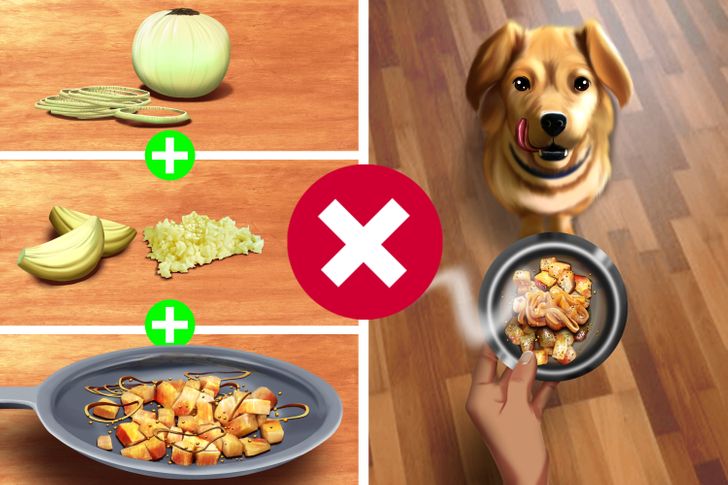
- Onions, leeks, and garlic are highly toxic to dogs because they contain allicin. Whether raw, cooked, or in powdered form, these foods destroy the animal’s red blood cells and can cause hemolytic anemia.
- They should be completely excluded from their diet. Try to avoid sharing prepared food with your dog since onion and garlic are usually added as seasoning.
2. Candies, desserts, or toothpaste that contain xylitol
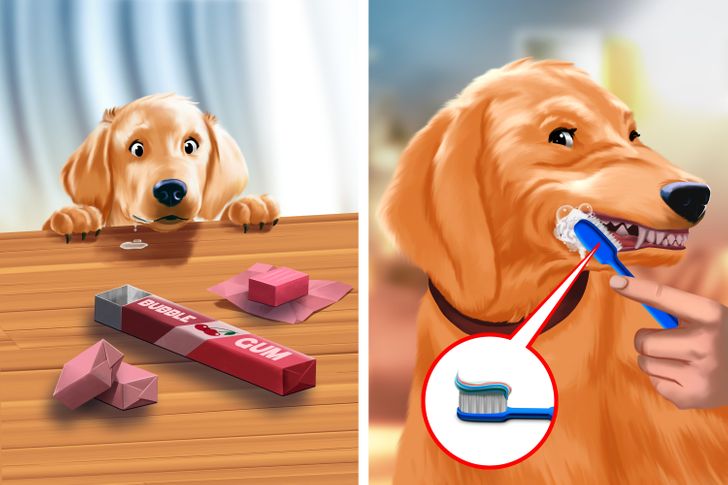
- Xylitol is a highly toxic sweetener for dogs. It is present in products such as treats, candies, chewing gum, desserts, peanut butter, and toothpaste, among others.
- If your pet consumes xylitol, it could lower its blood sugar level and cause vomiting, convulsions, and liver failure.
- Avoid leaving treats containing this substance within their reach, as they could take them when you’re not watching him. And when you want to brush their teeth, don’t use your toothpaste.
3. Coffee, tea, and chocolate
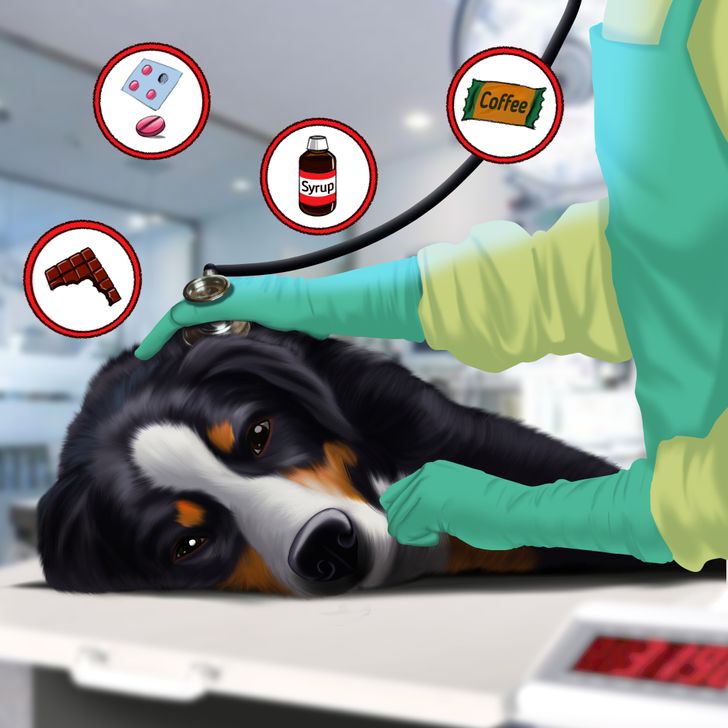
- Caffeine, theophylline, and theobromine are toxic substances present in coffee, tea, and chocolate, as well as in energy drinks, flu medicine, and painkillers. In addition, these products contain a stimulant alkaloid, called methylxanthine, which affects dogs’ nervous systems.
- The ingestion of one or more of these foods puts the animal’s life at risk and action should be taken as soon as possible by seeing a veterinarian. The symptoms that your pet may present are vomiting, diarrhea, drowsiness, tachycardia, and convulsions.
4. Macadamia nuts
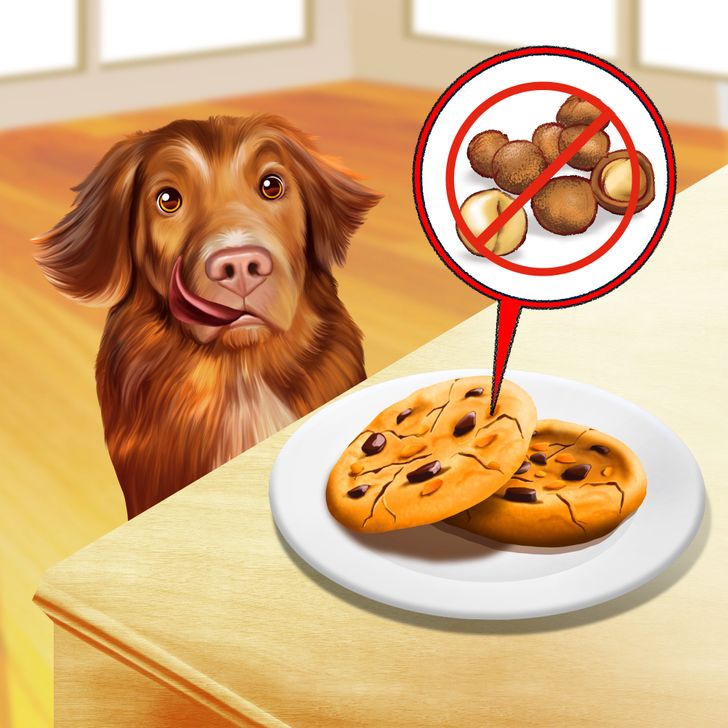
- Macadamia nuts, raw or roasted, are harmful foods that can cause intoxication in dogs when consumed.
- If your pet ingests 6 of these nuts, severe effects will occur within 24 hours; however, it will not cause death unless it has swallowed a chocolate bar containing this nut.
- Depending on the amount ingested, symptoms include depression, vomiting, abdominal pain, rigidity, and the development of pancreatitis due to its high oil content.
5. Grapes and raisins
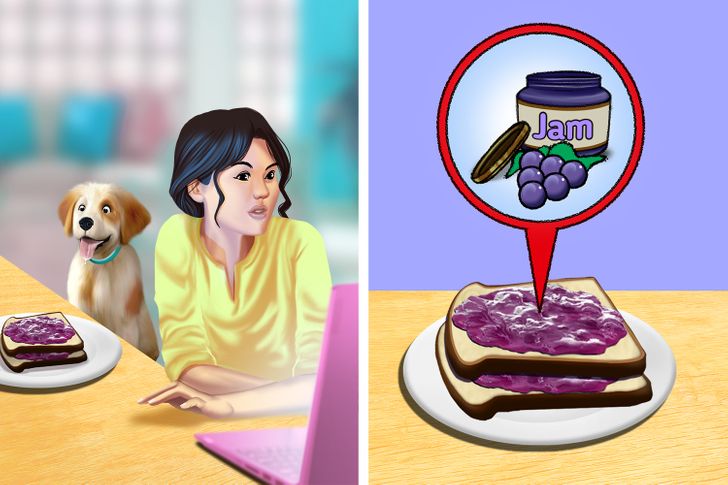
- Grapes and raisins cannot be consumed by canines, even in small quantities, due to their high toxicity index. Keep them out of their reach, especially if you use them in foods that could be appetizing to them.
- Your pet may show the following symptoms: vomiting, loss of appetite, abdominal pain, and dehydration, among others. Some dogs may even experience acute kidney failure.
6. Avocado
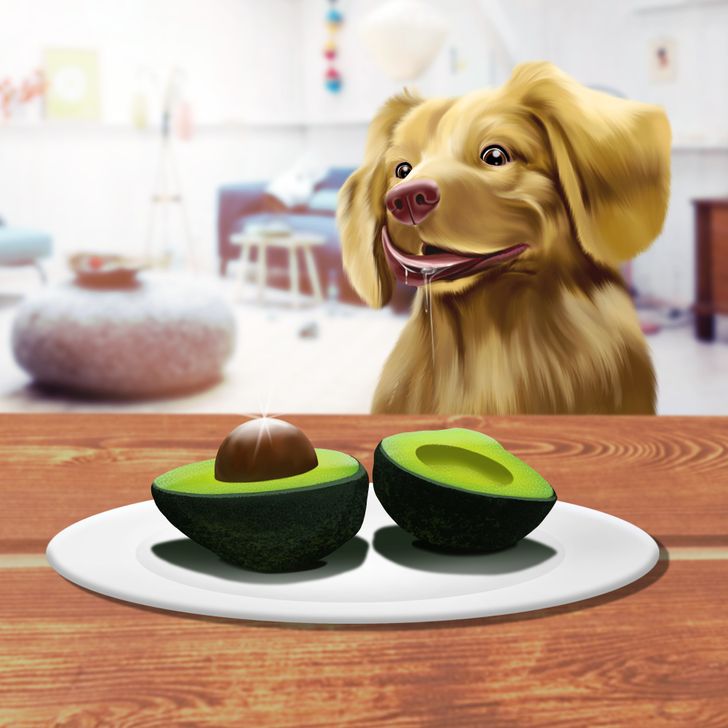
- Despite being a product widely used in our cuisine, it can be very harmful not only for dogs but for most pets, as it contains persin, a substance that can cause stomach pains and even pulmonary edema.
- Not only is the avocado fruit toxic, but its leaves and seeds are bad as well, so your dog should be urgently taken to a veterinarian if they swallow or ingest these things.
7. Fat trimmings and bones

- Another forbidden food your furry friends should avoid is raw or cooked animal protein fat, as it can cause pancreatitis.
- Likewise, cooked bones should be kept away from dog snouts. They could break their teeth or cause a blockage in their windpipe, along with perforations as well as other internal injuries. Yes, you can offer them raw bones as long as they are large in size. Small ones, such as chicken bones, could splinter their gums and injure them.
Bonus: less dangerous foods that should also be avoided
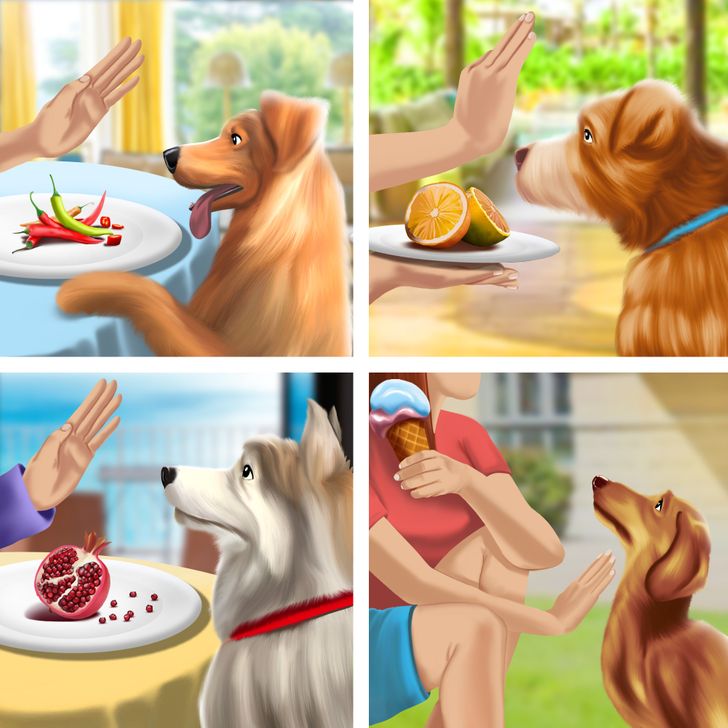
It’s worth mentioning that there are some foods whose consumption is preferable to avoid, even though they are not potentially fatal for canines. They could cause stomachaches, among other intestinal discomforts.
- Green tomatoes
- Chiles
- Eggplant
- Swiss chard
- Brussels sprouts
- Oranges
- Lemons
- Pomegranates
- Almonds
- Sugar
- Dairy-based ice cream and smoothies
Share This Article